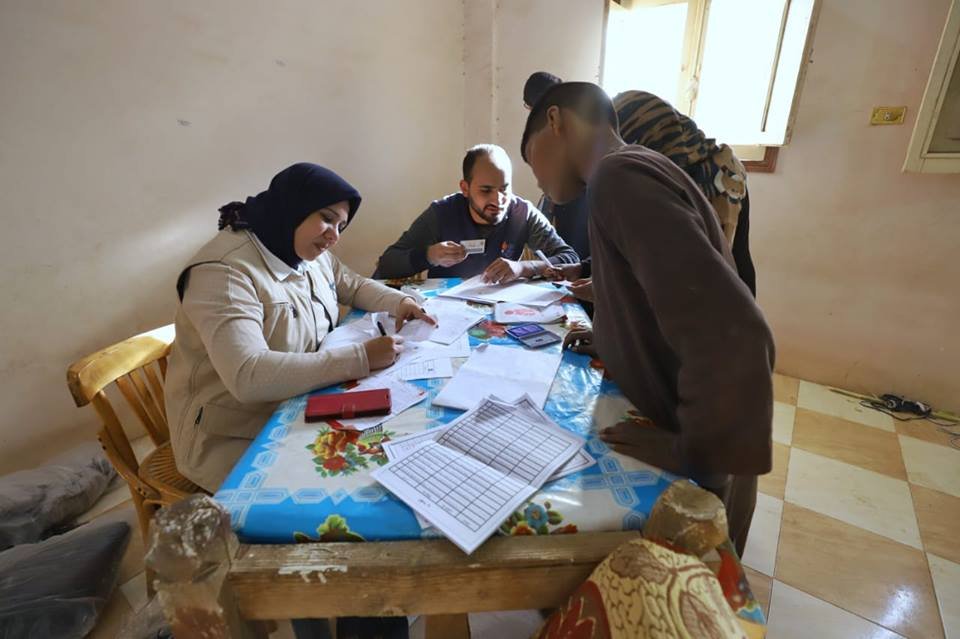All In: The Federal Government’s Plan to Tackling America's Homelessness Crisis
HEALTH & HOMELESSNESS SERIES:
The Biden Administration’s plan to reduce homelessness by 25% by 2025 is focused on preventing homelessness before it occurs in the first place. Jeff Olivet, executive director of the U.S. Interagency Council on Homelessness, discusses how they are urgently addressing basic needs of people in crisis, and expanding housing and support to help people get and stay housed.
Making House Calls to Those Who Have No House: A Street Psychiatrist’s Journey Supporting the Mental Health of Our Unhoused Neighbors
HEALTH & HOMELESSNESS SERIES:
Many think mental illness leads to homelessness, but a bidirectional relationship exists, and homelessness can lead to mental illness as well. Katherine Koh, MD, a practicing psychiatrist at the Boston Health Care for the Homeless Program and Massachusetts General Hospital, discusses how her innovative practice of street psychiatry supports our unhoused neighbors.
Combatting Los Angeles’ Homelessness Crisis Through Coordination, Outreach, and Support
HEALTH & HOMELESSNESS SERIES:
Inside Safe, Los Angeles’s program to reduce homelessness, recently achieved its ambitious goal of housing 1,000 people in its first 100 days. Dr. Va Lecia Adams Kellum, CEO of Los Angeles Homeless Services Authority, discusses the nature of the challenge, the approach, and the city’s early progress.
Confronting Poverty and Child Malnutrition in Sub-Saharan Africa with the Noiler Bird
In Sub-Saharan Africa, the problems of malnutrition and poverty are inextricably intertwined. Dr. Ayoola Oduntan, an ambitious social entrepreneur, is tackling both of these problems with his dual purpose breed of chicken, the Noiler.
Modernizing Workforce Development for a Healthy and Inclusive Economy
FUTURE OF WORK SERIES:
Millions of people languish at the margins of the workforce despite nearly two open positions for every unemployed job seeker. Kate Markin Coleman, 2017 Harvard ALI Fellow, offers principles for a data-based, stakeholder-driven, collaborative approach to modernize the nation’s workforce development system.
Care Worker Shortage and Part-Time Work Culture in the Netherlands – An Integrated Approach to Tackle this Labor Conundrum
FUTURE OF WORK SERIES:
The world is facing a shortage of workers. Wieteke Graven, the founder of HPP, summarizes the employment situation in the Netherlands, and details how HPP is helping employers to shape the future of work.
Invest in Gang Members: A Counterintuitive Approach to Community Change
SOCIAL EQUITY SERIES:
How can investing in gang members transform our communities? Michelle Caldeira and Mark Culliton discuss the counterintuitive approach that Uncornered takes to address violent crime.
Closing the Racial Wealth Gap Begins with One Person, One Community at a Time
SOCIAL EQUITY SERIES:
Closing the racial wealth gap is a generational challenge. Khamla Erskine, the executive sponsor of The Fellowship Initiative, details how JPMorgan Chase is bridging the divide, one community at a time.
Southwire Company and Georgia Schools Innovative Partnership Increases At-Risk Students’ Graduation Rates
SOCIAL EQUITY SERIES:
How does a leading wire and cable manufacturer become a source of transformation for at-risk students? Burt Fealing from Southwire and Ethan Rouen from the Harvard Business School describe the 12 for Life program and how it has partnered with communities and achieved collective success.
Empowering Young People in Low- and Middle-Income Countries Can Ease the Immigration Crisis and Save Lives
OPINION COMMENTARY:
Like many from countries where poverty and unemployment run high, a large number of young people in Upper Egypt feel hopeless. Ahmed Elmoursi proposes setting up training academies in the region to address the skills gap and provide the needed bridge between school and work.
The Politicization of ESG Investing
There is currently an intense political divide in the United States regarding the integration of environmental, social, and governance (“ESG”) factors into the investment decisions of public and private pension funds. The key issues are whether ESG factors are appropriate considerations in furthering optimal financial performance and whether it is appropriate for plan fiduciaries to consider potential collateral social or environmental benefits in making their investment decisions. David Cifrino discusses the history, fiduciary law, financial performance and regulation associated with ESG investing.
Solving Workforce Skills Gaps: Community Colleges, Employers and Integrators
FUTURE OF WORK SERIES:
Quality jobs that provide local living wages and equitable access to career pathways have become a critical part of the “future of work” conversation. Richard Kane and Barry Puritz of the Harvard Business School Club of New York’s Skills Gap Initiative, and Kenneth Adams, President of the LaGuardia Community College, discuss the creation of a non-degree program that is providing life-changing career pathways for individuals from low-income communities.
We Don’t Need Permission: How Black Business Can Change Our World
Eric Collins, founder of Impact X Capital and host of the UK The Money Maker, discusses how black entrepreneurship and business ownership is a pathway to black empowerment. He gives us his advice on how we can be disruptive visionaries and boldly create the world we want to see.
India’s Zero Fatality Corridors: An Empathetic and Nuanced Solution for the Global Road Crash Epidemic
The knowledge, practices and methods pertaining to road safety have primarily evolved from the Western world. This knowledge is out of touch with the existing situation and realities specific to low- and middle-income countries. Their ineffectiveness translates into crashes, injuries, and deaths that could be avoided had they been adapted in a context-specific manner. Indian non-profit, SaveLIFE Foundation, through its scientific, quantifiable and well-documented Zero Fatality Corridor (ZFC) Model, makes a compelling case for considering cultural empathy to adapt standard methods and practices to a local context. By significantly improving the efficacy related to rule adherence, crash avoidance, faster medical assistance and greater engagement, the Model has led to a decline in crashes, injuries, and fatalities, thereby saving more lives across roads in India.
A Pragmatic Approach to Connecting Social Innovators and Investors: Moonshot in Baltimore
Social innovators and entrepreneurs of color often highlight challenges they face in making connections with funders, champions, and sponsors. These result in barriers that hamper development and advancement of their creative work. Dr. John Brothers, President of the T. Rowe Price Foundation, talks about the evolution of the Foundation’s approach to philanthropy, leading to the creation of Moonshot, an innovative, multi-year program designed to bring Baltimore’s entrepreneurs of color together with the global investment management firm’s network of investors and sponsors.
Elevating Qualitative Data in Impact Performance Reporting
Impact performance reporting has been too influenced by mainstream financial reporting, trying to boil everything down to numbers, metrics and scores. Sarah Gelfand and Laura Budzyna, impact specialists, highlight the critical importance of also integrating qualitative information so the field does not lose the nuance that would ultimately make it better impact investors.
Finishing the Emerald Necklace is a Matter of Environmental Justice
OPINION COMMENTARY:
Urban heat islands, compounded by the effects of climate change and environmental neglect, have a disproportionate impact on disadvantaged communities. David Cifrino, a 2022 Harvard Advanced Leadership Initiative Senior Fellow, uses Dorchester’s Columbia Road greenway as a model of our opportunity to bring about environmental justice.
The Untapped Opportunity of Broad-Based Ownership
Aligning the economic interests of shareholders and senior management with equity incentives is a foundational principle of American capitalism. Can the same principle also be harnessed to address wealth inequality in America by extending “ownership culture” to a broader cross-section of America’s workforce?
Addressing the Digital Divide for Smallholder Farmers
TECHNOLOGY INNOVATION IN SOCIAL IMPACT SERIES:
Digital innovation and open-source technology have evolved and matured over the last two decades and are now being applied to various uses beyond their traditional applications to business and industry. In this article, Heifer International’s Product Manager, Antoinette Marie, explores various use cases for technology to address the sustainable development goal of Zero Hunger using a collaborative and multi-stakeholder approach with smallholder farmers.
Inviting Innovation: What Society Gains With Inclusive Tech Design
TECHNOLOGY INNOVATION IN SOCIAL IMPACT SERIES:
Many of the greatest leaps in technological advancement have emerged from a desire to improve the quality of life for underserved members of society. The article questions and addresses how sustained efforts to develop inclusive and accessible tech might lead to further progress for humanity as a whole.




















